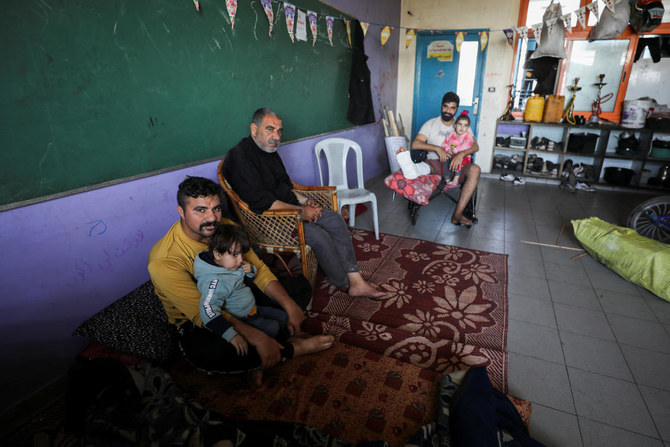GAZA: Palestinian Redwan Abu Alkas lost his daughter in an Israeli airstrike. His home was destroyed and the family’s dream of opening its own business, a pizzeria in the once bustling Gaza Strip, was shattered.
The family had saved up the money and bought all the equipment. That was before the Israeli bombardment of one of the most densely populated areas in the world began in the conflict between Israel and the Palestinian Hamas militants who rule Gaza.
“In this war, I lost my daughter, first of all. I used to have money to start a good project. I had gained enough experience from working in restaurants in Gaza Strip — I worked in most of the restaurants in Gaza — and now there is nothing,” Redwan told Reuters at a UN-run school being used as a shelter for displaced Palestinians.
.”..I had a brother who was going to be my partner, he is now wounded. He might get better, he might not. All the money that I had for the project is gone because of price rises.”
Redwan’s brother, Hamza, is confined to a wheelchair. He was wounded while trying to secure food aid.
“I stopped going out and seeing people. I’m sitting in a wheelchair and in bed, being treated and sometimes circumstances prevent me from getting to the hospital to get treatment because of the occupation,” he said.
The war erupted six months ago when Hamas militants attacked Israel, killed 1,200 people and seized more than 200 hostages and took them back to the Gaza Strip, which has miles of strategic tunnels built by Hamas to hide and store weapons.
Israeli responded with airstrikes that have killed more than 32,000 people and wounded more than 75,000, according to Gaza health authorities.
There are tragedies that don’t get as much attention as the bloodshed — the loss of livelihoods and plans for the future.
Gaza war shatters Palestinian family and its simple dream of opening a pizzeria
https://arab.news/5hnvb
Gaza war shatters Palestinian family and its simple dream of opening a pizzeria

- The family had saved up the money and bought all the equipment
- “I used to have money to start a good project. I had gained enough experience from working in restaurants in Gaza Strip,” Redwan told Reuters




























